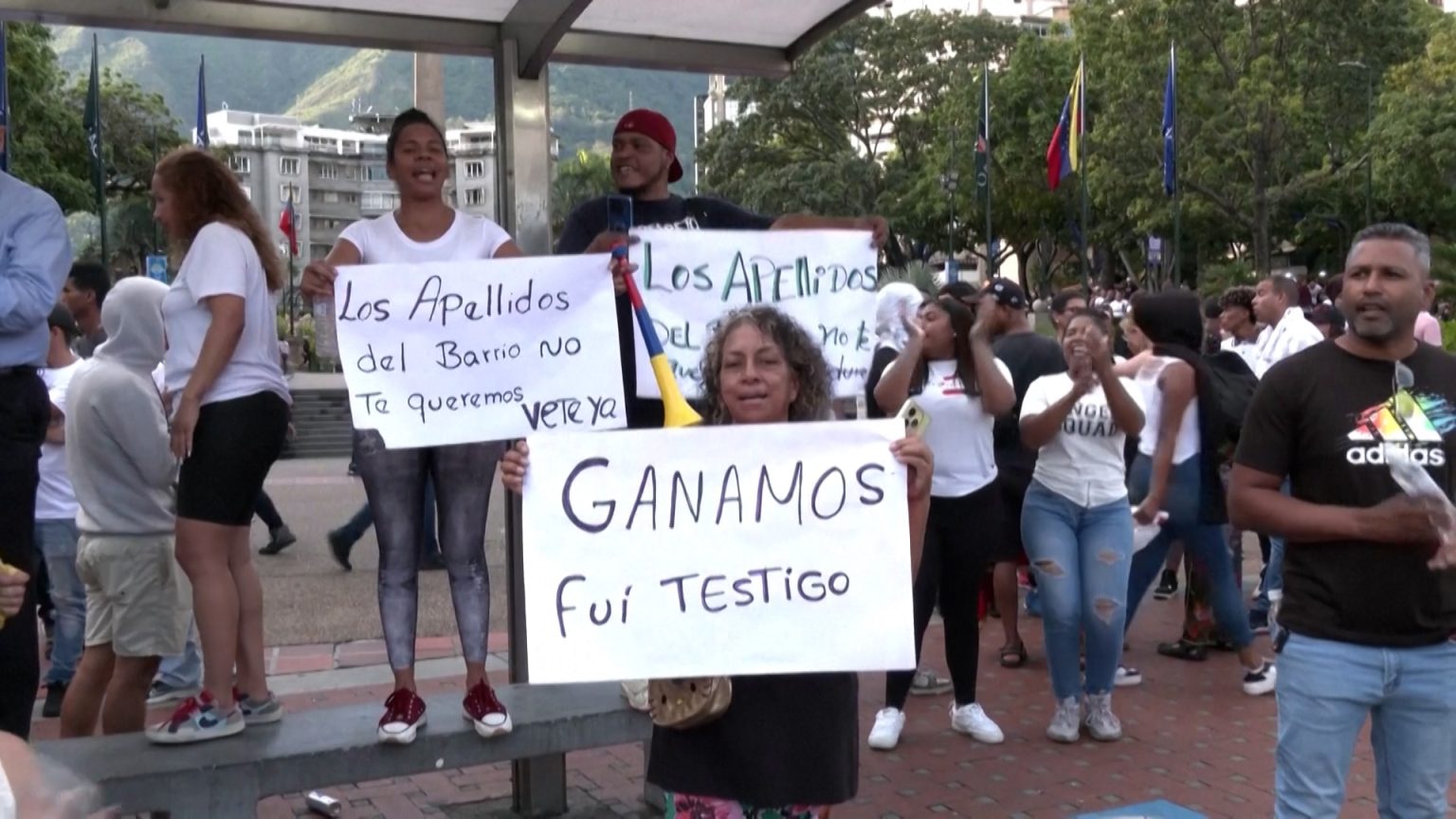In Venezuela, protests have broken out following the disputed presidential election results that declared Nicolas Maduro as the victor. Demonstrators clashed with police, who fired tear gas to disperse the crowds. In one incident, protesters toppled a statue of former president Hugo Chavez, a controversial figure in Venezuelan politics. The unrest reflects the growing dissatisfaction with the current government and the election process, which many believe to be corrupt and undemocratic.
The protests in Venezuela have escalated in response to the announcement of Maduro’s victory in the disputed presidential election. Demonstrators have taken to the streets to express their anger and frustration with the government, which they believe is corrupt and illegitimate. In one particularly symbolic act of defiance, protesters toppled a statue of former president Hugo Chavez, a divisive figure in Venezuelan politics. The clashes between protesters and police have resulted in violence and chaos, with tear gas being used to disperse the crowds.
The statue of Hugo Chavez being torn down by protesters is a significant symbol of the growing discontent with the current government in Venezuela. Chavez remains a polarizing figure in Venezuelan politics, with many viewing him as a champion of the poor and oppressed, while others see him as a dictator who oppressed dissent and oversaw the decline of the Venezuelan economy. The toppling of his statue represents a rejection of his legacy and a desire for change among the Venezuelan people.
The use of tear gas by the police to disperse protesters reflects the growing unrest and tension in Venezuela following the disputed election results. The government’s heavy-handed response to the protests has only served to exacerbate the situation, with many calling for a peaceful resolution to the crisis. The violence and chaos in the streets of Venezuela highlight the deep divisions within the country and the urgent need for a resolution to the political crisis that has engulfed the nation.
The protests in Venezuela are a reflection of the deep-rooted political and economic crises facing the country. The disputed election results have only further inflamed tensions between the government and the opposition, leading to widespread unrest and violence. The toppling of the statue of Hugo Chavez is a symbolic act of defiance against the current regime and a call for change in Venezuela. The use of tear gas by the police to quell the protests has only escalated the situation, with both sides becoming more entrenched in their positions.
As the protests continue to unfold in Venezuela, the international community has called for a peaceful resolution to the crisis and for respect for democracy and human rights. The violence and chaos in the streets of Venezuela are a stark reminder of the challenges facing the country and the urgent need for a political solution to the crisis. The toppling of the statue of Hugo Chavez is a symbolic moment in the ongoing struggle for democracy and freedom in Venezuela, as protesters continue to demand change and accountability from the government.


